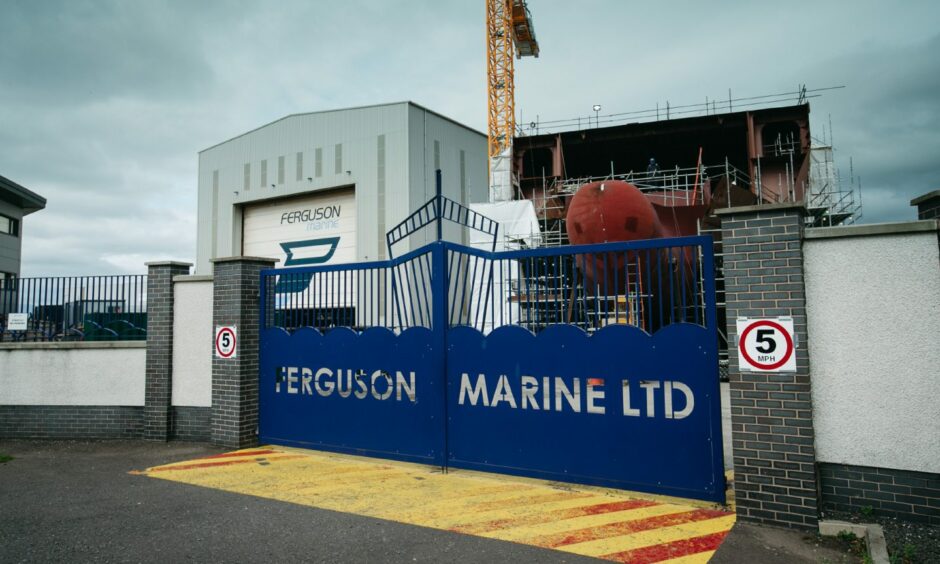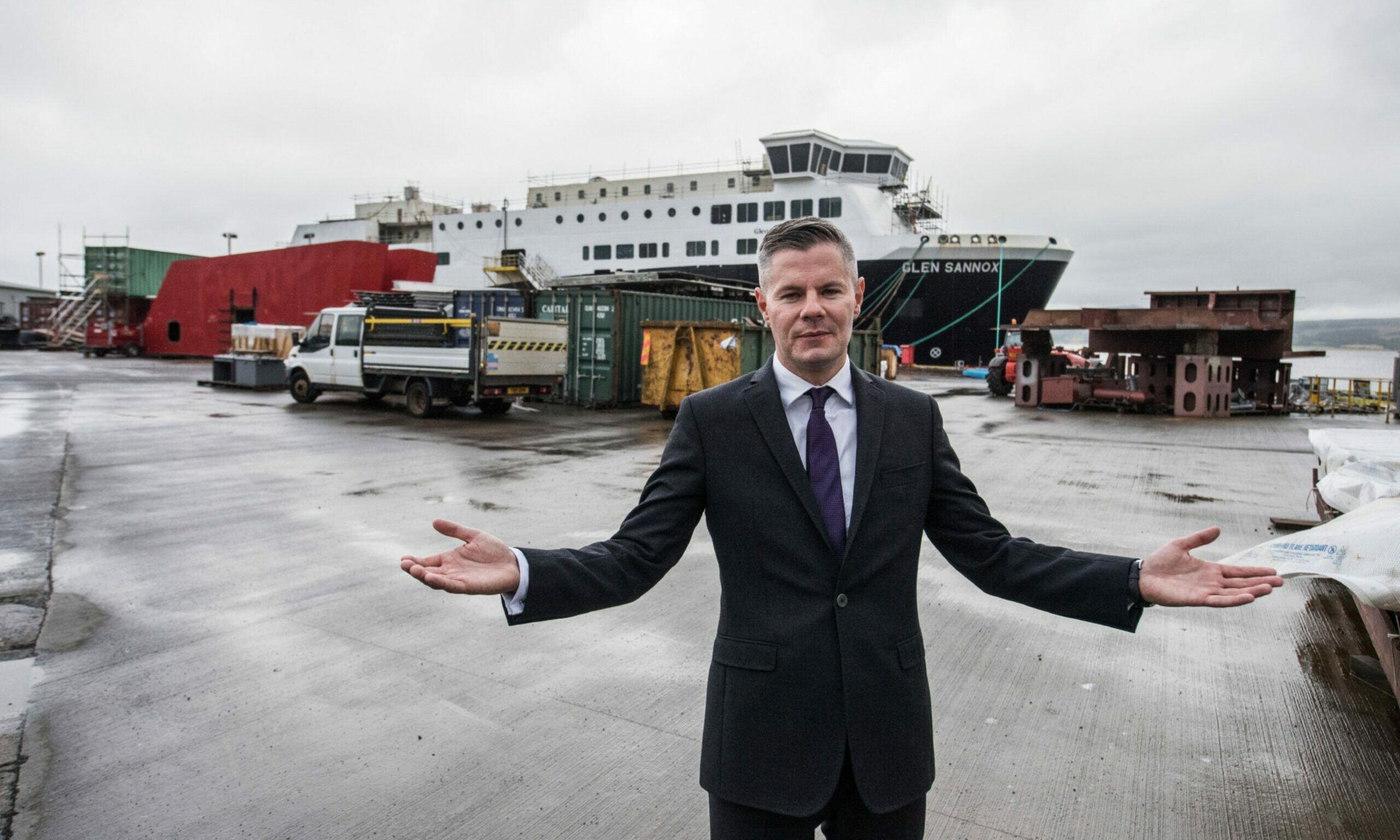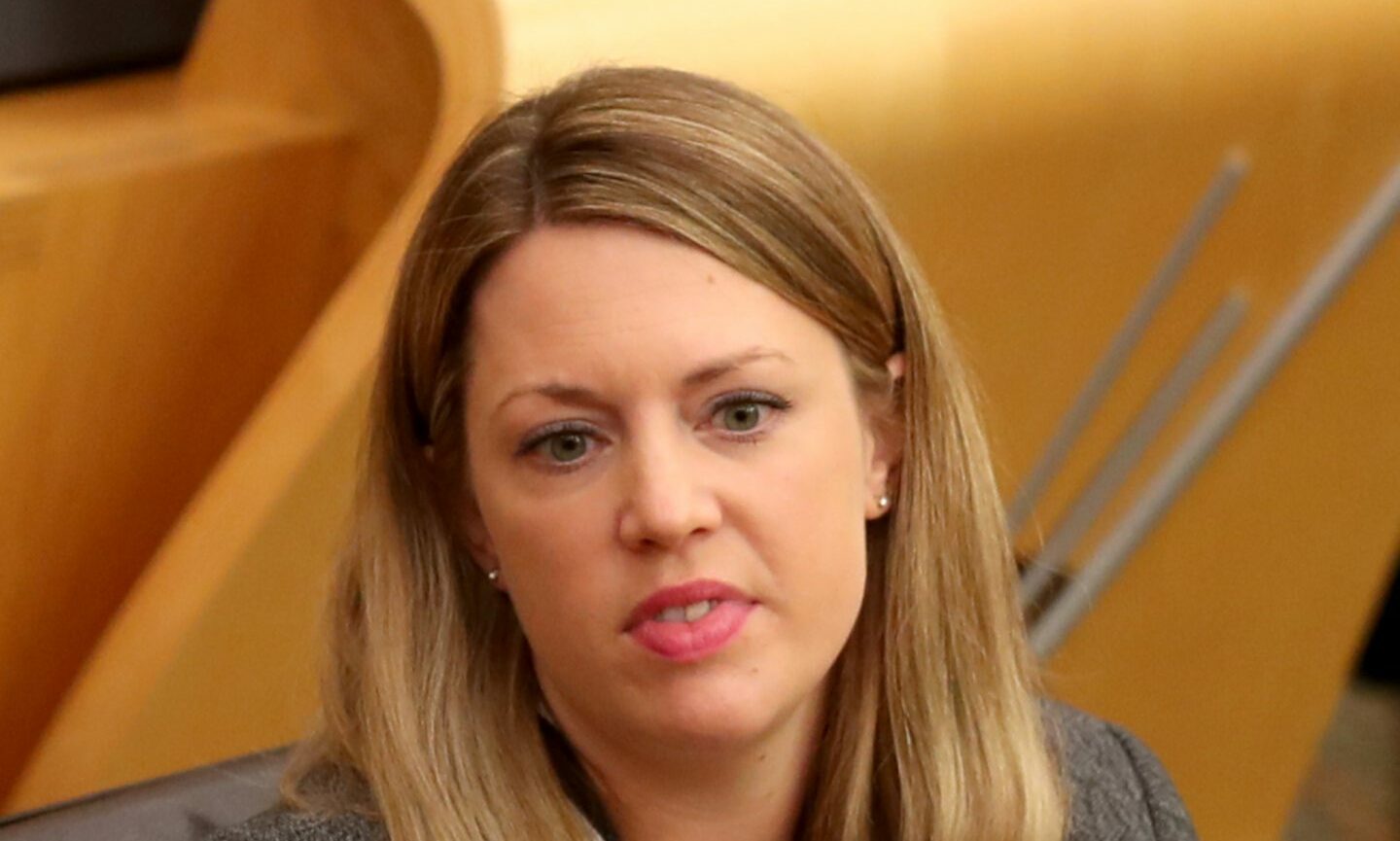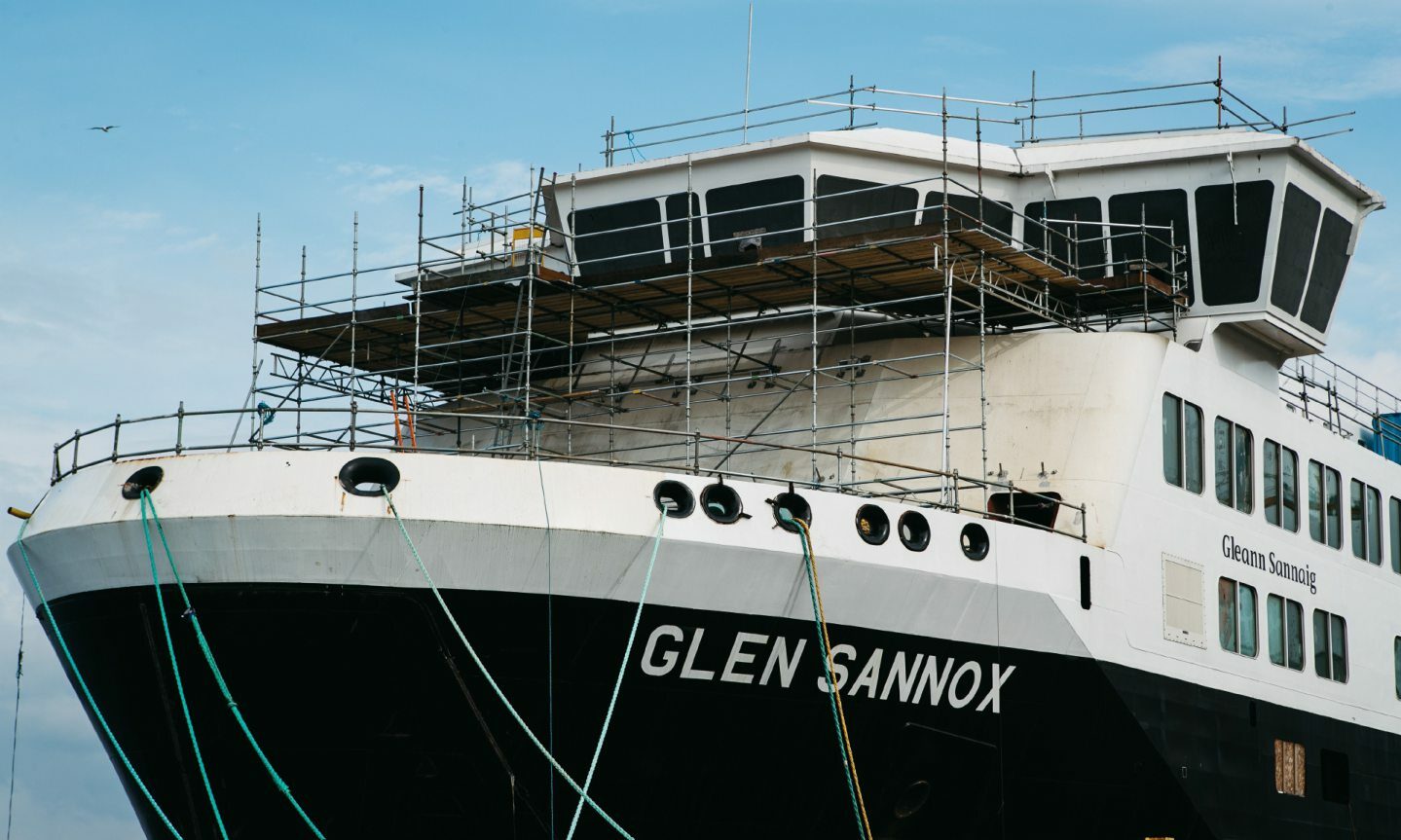From delayed vessels to censored emails and contracts going to shipyards abroad, the SNP have endured a torrid time over the endless ferries scandal.
In the latest major twist, Ferguson Marine has confirmed last-minute changes mean one of the ships will not be able to begin sea trials when planned.
Ex-shipyards boss Jim McColl still claims deals agreed with Ferguson Marine in 2015 were passed for political purposes.
Here are the growing number of points which undermine his party’s story over the troubled ferries programme.
1 – Yet more delays
Ferguson Marine has confirmed that sea trials for one of the two ships being built will now be delayed, despite the vessel already being five years behind schedule.
The Glen Sannox – the first of the ferries due for completion – was expected to start sailing in the spring of 2024.
However, Ferguson Marine has now announced last-minute changes are needed as three new staircases are required.
2 – Cheaper to build a new ferry
SNP economy minister Neil Gray confessed it would possibly be cheaper to abandon construction of the Hull 802 vessel and begin work on an entirely new boat.
That’s despite the fact the ship was first scheduled to be launched in 2018, just like the Glen Sannox.
Mr Gray told MSPs continuing to build the delayed vessel was not necessarily the best way for the government to spend their money.
But he insisted starting from scratch on a new ferry would leave islanders in the lurch for longer since it would not be operational until 2027.
Mr Gray said: “While I accept the pure value for money assessment concludes it could be cheaper to procure a new vessel, this work also shows that doing so would result in significant further delays.”
3 – Jim McColl blame game
Tycoon Mr McColl blames the SNP for pushing ahead with the contract in spite of ferry owners CMAL having reservations over the deal.
The former shipyard owner has accused CMAL of meddling and insists he only found out they were against the deal long after it had been agreed.
Mr McColl was a key business ally of the SNP when he took control of ailing Ferguson’s before the independence referendum, but he has since branded Nicola Sturgeon a “liar”.
Bosses from CMAL admit they had doubts about the contract, but deny claims of interference.
Instead they insist managers are at fault for major errors in the shipbuilding process.
Responding to accusations, CMAL chief Kevin Hobbs told Holyrood’s Public Audit committee: “Mr McColl has no shipbuilding pedigree whatsoever.”
4 – Ferry deal may have been ‘rigged’
The Scottish Government has repeatedly insisted the contract was awarded to Ferguson’s because their bid was the most detailed.
But a dossier leaked to the BBC revealed a separate bid from a Polish shipyard may have been more suitable.
Mr Swinney admitted he had “concerns” about the new information which had come to light.
Tory MSP Graham Simpson accused the Scottish Government of “corporate corruption”.
5 – Vessels are now ‘obsolete’
In 2022, the Scottish Government said the new Calmac ferries would be “greener, quieter, reliable vessels”.
Appearing before MSPs on June 16 last year, Mr McColl astonishingly claimed the two ships being built in Port Glasgow will be “obsolete” by the time they are completed.
The businessman insisted the vessels will not be environmentally friendly due to using liquified natural gas.
He also warned that the boats could potentially omit “poisonous gases” into the air while in the water.
6 – Worker reputations ‘sullied’
Ms Sturgeon and government ministers repeatedly insisted they would take responsibility for ferries failings.
However, in the June 16 appearance at parliament Mr McColl said staff at Ferguson Marine had unfairly had their reputations “sullied”.
The former shipyard boss added that workers have been left with depression due to “false claims” made about their quality of work.
Mr McColl also insisted that senior management at Ferguson’s were still being subjected to gagging orders which stop them from speaking out.
7 – Lack of transparency over awarding the contract
Years after the deal was first reached, uncertainty still reigned over who took the final decision to allow Ferguson’s to contract the ships.
In a highly critical report, the Audit Scotland watchdog said it could not establish why ministers dropped a requirement for full repayment guarantees if Mr McColl’s Ferguson yard failed to build the ships on time or went bust.
This is the moment Derek Mackay announced the Ferguson ferry contract award to SNP conference on 16 Oct 2015 – a week after @scotgov decided it was “content to proceed” despite CMAL advising there were “too many risks” pic.twitter.com/mnmJVRyfSV
— Glenn Campbell (@GlennBBC) March 24, 2022
The billionaire said he had made it clear to the government and CMAL he could not provide the mandatory refund guarantee for the contract.
8 – SNP deflect blame from John Swinney
Who gave the project the green light?
It was disgraced former finance secretary Derek Mackay, then a junior minister, according to Ms Sturgeon.
In his first appearance at Holyrood in two years since being forced to resign, Mr Mackay admitted he shouldered some of the responsibility.
But despite admitting there had been “catastrophic failures”, the ex-SNP MSP insisted approval had not been rushed.
Previously missing emails showed Mr Swinney signed off on the contract.
Scottish Tory leader Douglas Ross said: “Honest John’s hands are all over this dodgy deal.”
Ms Sturgeon said Mr Swinney “was simply briefed on the decision”.
9 – New ships being built abroad
Ex-SNP leader Ms Sturgeon continually insisted the SNP made the right decision to bring Ferguson’s into public ownership in 2019.
Former Transport Minister Jenny Gilruth claimed the shipyard must be made “viable” to ensure it is value for money.
But in March last year the government sparked anger when they snubbed Ferguson’s and instead awarded contracts for two new boats to a Turkish shipyard.
10 – Boat launched with painted windows
In 2019 it emerged a ferry launched nearly two years previously had fake windows which had been painted on.
Black paint was daubed on the front of the Glen Sannox vessel despite millions having already been spent on the boat.
11 – Meanwhile, ferry passengers are furious
Scottish Government ministers have regularly insisted they take the transport woes of islanders seriously.
But passengers have branded the existing ferry system “utterly chaotic” and claim locals are quitting their communities to live elsewhere.
Islanders warned businesses are being left “at the point of extinction”.
12 – And now two more ferries are promised
Just when you thought it was safe to get back in the water, the SNP Government announced plans for another two ferries for the Hebrides.
Transport Scotland said the contract will be awarded before the end of the year at a cost of £115million, including minor port improvements.
The ferries are intended for the Skye routes to Lochmaddy and Tarbert.






